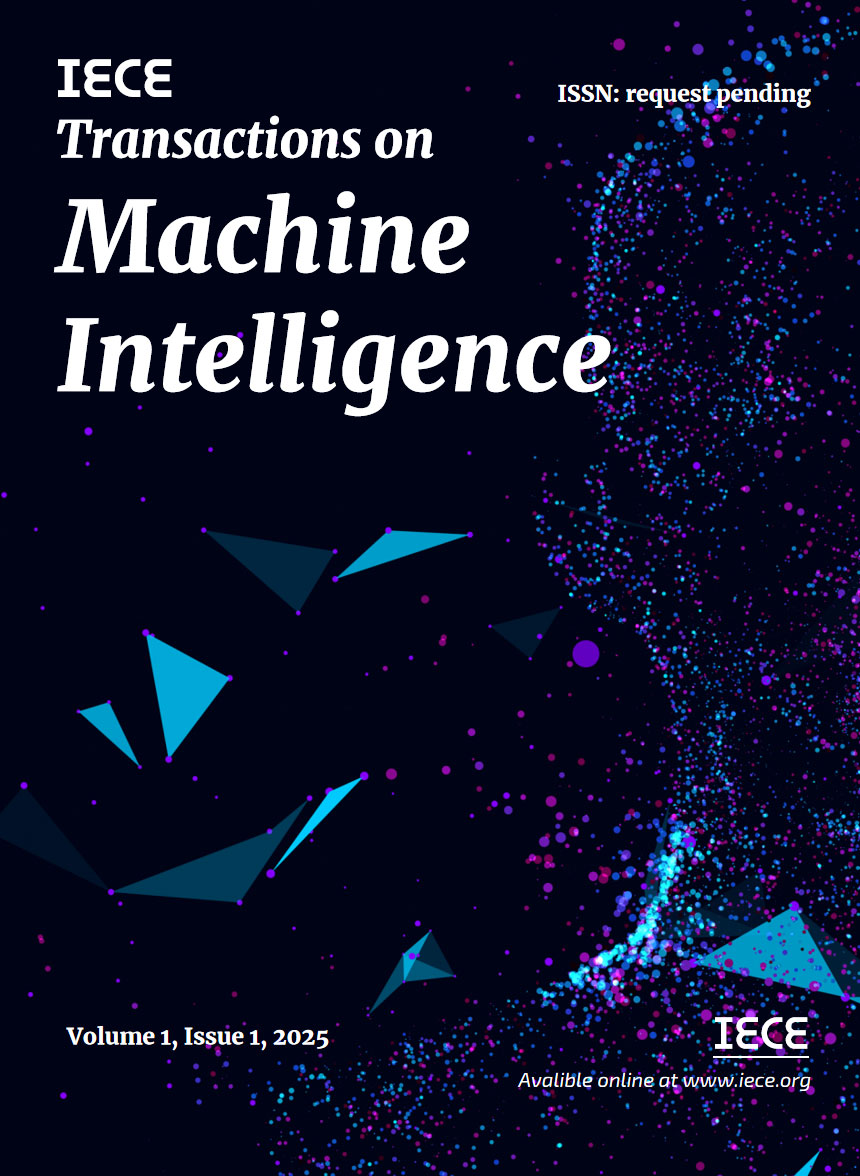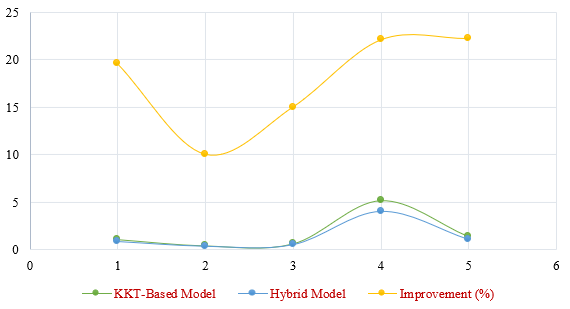Abstract
Neutrosophic sets play a significant role for handling indeterminacy. In this paper, we introduce a novel fuzzy non-linear regression model to find the minimum spread of neutrosophic fuzzy sets. Kuhn-Tucker's necessary conditions are employed to estimate the parameters for non-linear regression models, which can be applied to any data set. The resulting hybrid model possesses the ability to minimise the spread of uncertainty in a much better fashion than the existing non-linear regression contenders which rely on KKT- based model. The hybrid approach reduces the maximum spread by 22.09% and improves prediction accuracy, as shown by a 22.23% reduction in RMSE. The study’s findings highlight the hybrid model’s ability to achieve tighter spreads and enhanced predictive reliability, particularly in complex systems where uncertainties in data are significant. This research contributes to advancing fuzzy regression techniques, offering a powerful tool for improved uncertainty quantification in nonlinear systems.
Keywords
fuzzy sets
regression analysis
fuzzy non-linear regression model
neutrosophic fuzzy set
Data Availability Statement
Data will be made available on request.
Funding
This work was supported without any funding.
Conflicts of Interest
The authors declare no conflicts of interest.
Ethical Approval and Consent to Participate
Not applicable.
Cite This Article
APA Style
Khan, M., Kumar, R., & Dhiman, G. (2025). A Hybrid Machine Learning Fuzzy Non-linear Regression Approach for Neutrosophic Fuzzy Set. IECE Transactions on Machine Intelligence, 1(1), 42–51. https://doi.org/10.62762/TMI.2025.561363
Publisher's Note
IECE stays neutral with regard to jurisdictional claims in published maps and institutional affiliations.
Rights and permissions
Institute of Emerging and Computer Engineers (IECE) or its licensor (e.g. a society or other partner) holds exclusive rights to this article under a publishing agreement with the author(s) or other rightsholder(s); author self-archiving of the accepted manuscript version of this article is solely governed by the terms of such publishing agreement and applicable law.


 Submit Manuscript
Edit a Special Issue
Submit Manuscript
Edit a Special Issue

